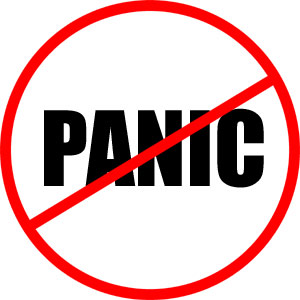
PR is already a fast paced business, but crisis PR operates at lightning speed. When a company’s reputation is on the line, its PR team must act fast to prevent damaging headlines.
You may recall some of the headlines after the NFL was inconsistent in its management and communication of domestic violence incidences involving players: Still Playing: 12 NFL Players Have Domestic Violence Arrests or Video surfaces of Ray Rice’s domestic violence incident. These headlines aren’t pretty, and they don’t portray the NFL in the best light. Since the controversy started, the NFL has gone back and revised its policies to help mitigate the damage. “Damage control” is just one tactic commonly used by brands. But what else should you consider when managing a crisis?
Here are five tips to help keep you and your team cool:
- Be prepared. Have a crisis plan in place and review and update it regularly. Brainstorm potential crisis scenarios that are both uncontrolled and controlled and evaluate any rumors that may be circulating to help plan for potential future crises. Formulate reactive statement templates and talking points for the situations that are most realistic. Prepare for different scenarios and have a specific plan of action for each.
- Practice. It isn’t enough to just have a plan, you have to practice. Identify the right spokespeople and practice talking points. Everyone should know what the crisis plan is and exactly what their role is if a problem arises.
- Accept responsibility. If your company made a mistake, admit it as soon as possible. People are much more forgiving if a company accepts responsibility for its actions rather than backtracking down the road or covering up a misstep.
- Be consistent. It is critical that the company uses one “voice” to speak and remains consistent in its message. The entire communications team and stakeholders should be clear not to make any comments to anyone unless explicitly specified and be sure to have inquiries directed to the approved spokesperson.
- Damage control. During a crisis, it is a good idea to immediately start addressing the problem and present a solution. But be careful, the message must be consistent and actionable. It does no good to present a solution that will never see the light of day. Media can see through this. Be transparent on updating the press and making statements as an organization.
This is a good start to managing a crisis appropriately. Every crisis plays out differently and even in the most prepared situations, your company might take a hit, but this can help alleviate the damage.
***
What are your tips for managing a crisis? Leave a comment below, or tweet us at @RHStrategic with the hashtag #RHetoricBlog.
RH Strategic is the PR firm for a hyper-connected world, delivering integrated media, social & digital strategies for technology, healthcare, and public sector markets.

